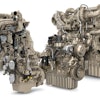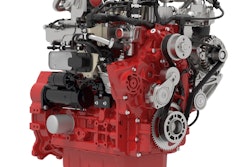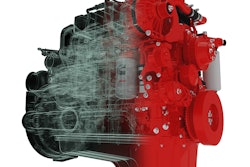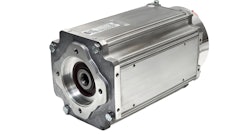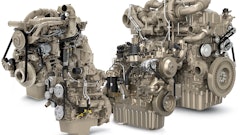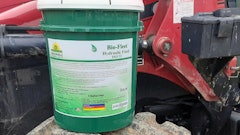Additives represent 15 to 20 percent of a gallon of oil with the balance being high-quality base oil. Additive packages play a key role in helping to keep an engine clean and protected from varnish and sludge, as well as provide wear protection and protection from heat and acids. Key additives perform vital functions:
Anti-oxidants — Engine oils react with oxygen in the air forming organic acids. Oxidation causes an increase in oil viscosity, formation of sludge and varnish, corrosion of metallic parts and foaming. Anti-oxidants inhibit this oxidation process.
Anti-wear additives — Anti-wear additives prevent direct metal-to-metal contact between the engine parts as they lay down a protective, sacrificial film. The use of anti-wear additives results in longer engine life as they reduce wear and scoring of the engine.
Friction modifiers — Friction modifiers reduce friction in the engine, resulting in less fuel consumption.
Dispersants — Dispersants keep foreign particles present in oil suspended so they don’t form deposit build-up on engine parts.
Detergents — Detergents neutralize strong acids present in the oil and remove them from metal surfaces. Detergents also form a film on the metal surfaces preventing sludge and varnish from forming in high temperature parts of the engine.
Pour point depressants — Pour point is the lowest temperature at which the oil may flow. Wax crystals formed in mineral oils at low temperatures reduce their fluidity. Pour point depressants inhibit formation of wax particles, allowing the oil to flow at low temperatures on engine start-up.
Viscosity index improvers — Engine oil viscosity sharply decreases at high temperature, which causes a decrease in the ability of the oil to lubricate properly. Viscosity index improvers keep the viscosity at acceptable levels, which provide a stable oil film even at increased temperatures.
Anti-foaming agents — Agitation and aeration of engine oil may result in formation of air bubbles or foaming in the oil. Foaming enhances oil oxidation and decreases its lubrication effect, causing oil starvation. Anti-foam agents prevent this from happening.
Properly functioning diesel engine oils help enhance fuel economy, prevent deposits and maintain proper flow and viscosity in hot and cold temperatures. On-road testing is important to understand how well diesel engine oil will hold up under extreme road conditions.
Content provided by Shell Rotella



